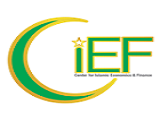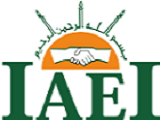Sustainable Welfare Model for the Internally Displaced Persons (IDPs) in the North-Eastern Nigeria: The Role of Waqf Financing
Abstract
The North East region of Nigeria has been experiencing the devastating impact of Boko Haram insurgency which triggered humanitarian crisis and destruction of infrastructure, leading to many becoming internally displaced persons in their country. The Federal Government and the Northeast State Governments, alongside the local and international Non-governmental organizations and development partners have been mostly providing relief services and materials to the IDPs, but despite all these efforts, there is still a funding gap, thus the need to bridge this vacuum; to supplement the efforts of governmental and non-governmental organizations in providing a long term and sustainable welfare model. It is against this backdrop that this study aims at unlocking the potentials of waqf financing model in catering for short-term and long-term welfare of IDPs in the Northeast and how the model could be properly utilized to complement the efforts of governmental and non-governmental organizations in the region. Multistage sampling method was employed in selecting respondents for the study. In the first stage, three States were purposively selected out of the six States of the region based on the devastation level by the insurgency. Thematic Analysis was employed as the method of data analysis. Both descriptive and inferential statistics were used to summarize and interpret the results of the thematic analyses of the data obtained. The findings of this research have shown the potentials of Waqf financing in bridging the funding gap of IDPs welfare in the north-east. The study also found out that food and clothing are the most critical areas that require immediate attention in the Waqf based IDPs welfare and that, the Investment Waqf Model will be the best means of financing the IDPs Welfare programme in the Northeast due to its modest unique potential advantages over other models. Finally, the study also identified that Conversion of IDPs Support Waqf to Less privilege Support Waqf in case of return of IDPs to their respective communities is the best exit plan for Waqf based IDPs welfare model amongst all other listed exit plans.
Key Words: North-East, IDPs, Welfare and Waqf Financing
Full Text:
PDFReferences
Abdulkarim Umar, Abeeb Mohammed Abideen, Idriss Yusuf, Closing the IDPs Camps in Yobe State, North-Eastern Nigeria: What Option for the Internally Displaced Persons?, International Journal of Advanced and Multidisciplinary Social Science, Vol. 4 No. 1, 2018, pp. 13-22. doi: 10.5923/j.jamss.20180401.03.
Abdulkarim Umar, Abeeb Mohammed Abideen, Idriss Yusuf, Closing the IDPs Camps in Yobe State, North-Eastern Nigeria: What Option for the Internally Displaced Persons?, International Journal of Advanced and Multidisciplinary Social Science, Vol. 4 No. 1, 2018, pp. 13-22. doi: 10.5923/j.jamss.20180401.03.
Afaanah, H. (1996):Baiul-murabahahlilamiribish-shira’, Abudis Publishers, Quds.
Al-Saad, A.M. (2008). Waqf role in family. Journal of Awqaf, 20(8), 125-141.
Al-Shaybaniy, A.A.U.A.B. (1999). Ahkam al-Awqaf. Bairut: Dar alkotoub ali-Ilimiyah.
Ammar, A.M. (2006). Waqf al-Nuqud wa al-Awraq al-Maliyyah. A'mal Muntada Qadaya al-Waqf al-Fiqhiyyah al-Thaniyyah, Tahddiyyat Asriyyah wa Ijtihadat Shar'yyah. Kuwait: IDB, Kuwait Awqaf PublicFoundation.
Amuda, Y.J. (2013). Empowerment of Nigerian Muslim households through waqf, zakat, sadaqat and public funding. International Journal of Trade, Economics and Finance, 4(6), 421-433.
Babacan, mehmet. Economics of Philanthropic Institutions, Regulation and Governance in Turkey. Journal of Economic and Social Research Vol 13(2) 2011, 61-89.
Braun V., &Clarke V., (2006).Using thematic analysis in psychology.Thematic analysis revised.http://eprints.uwe.ac.uk/11735/1/thematic_analysis_revised_-_final.doc
Cakir, S. and Raei, F. (2007), ‘Sukuk vs. Eurobonds: Is there a difference in Value-at-Risk?’, IMF working paper, WP/07/237Chapra, M. U and Ahmed H. (2002) “corporate governance for Islamic financial institutions” Occasional paper no. 6, Islamic research and training institute, Islamic development bank Jeddah, Saudi Arabia
Chaudhry, M. S. (1999), Fundamentals of Islamic Economic System. First Edition, Burhan Education and Welfare Trust. Lahore, Pakistan.
Cizakca, Murat. Awqaf in history and its implications for modern Islamic economies. Islamic Economic Studies Vol. 6, No. 1, November 1998.
Editorial. (2009). Waqf and the financial crisis: What waqf can do to the financial crisis. Journal of Awqaf, 17(1), 7-10.
Federal Government of Nigeria, (2012). National Policy on Internally Displaced Persons in Nigeria
Federal Ministry of Information, (1999), The constitution of federal Republic of Nigeria, FMI Press, Abuja.
Fuad, A.A. (2006). The role of modern waqf institutions in attending to women issues. Journal of Awqaf, 10(1), 137-150.
Grace, W.A. (2017). Challenges of internally displaced persons (IDPs) in Nigeria: Implications for counseling and the role of key stakeholders. International Journal of Innovative Psychology & Social Development, 5(2), 21-24
Hasan, Z., & Abdullah M.N. (2008),The investment of waqf land as an instrument of Muslims' economic development in Malaysia.
Hassan, Zulkilli. Islamic law of property, c-concept-of Waqf Islamic science
Ibrahim, B. (2009). From charity to social change: Trends in Arab philanthropy. Cairo, Egypt: American University in Cairo Press.
International Bank for Reconstruction and Development, (2015). Recovery and Peace Building Assessment Synthesis Report http://www.worldbank.org/en/country/nigeria
Kahf, M. (1998). Financing the development of a waqf property, paper presented at the seminar on development of awqaf organized by IRTI Kuala Lumpur. Malaysia.
Kahf Monzer, Waqf and its sociopolitical aspects.
Lenshi Edward and Henry Yenda (2016) , ‘Boko Haram Insurgency, Internally Displaced Persons and Humanitarian Response in Northeast Nigeria’ The International Journal of Humanities and Social Studies, Vol 4(8) pp 141-150
Lev, Yaacov. Charity, Endowments, and Charitable Institutions in Medival in Islam. Florida: University Press. nd.
Maiman. (2006). Waqf al-nuqud wa al-awraq al-maliyyah. A'mal Muntada Qadaya al-Waqf al-Fiqhiyyah al-Thaniyyah, Tahddiyyat Asriyyah wa Ijtihadat Shar'yyah. Kuwait: IDB, Kuwait Awqaf Public Foundation.
Mohammad T. M. (n.d.), Innovative modes of financing the development of waqf property.
Mooney, E. (2005). The Concept of International Displacement and the case of Internally Displaced Persons as a Category of Concern: in Refugee Survey Quarterly, Volume 24, issue 3.
Murray L. (1967), TheSokoto Caliphate, (New York: Humanities Press.
Nkechi, G.O., Benjamin, C.D., & Favour, U. (2018). Ethno-religious conflicts in Nigeria: Implications on women. Mediterranean Journal of Social Sciences, 8(5-1), 61-65.
Olusola, O., Bibilola, O., Dick, C., Garba, S., Sule, M., Heini, M., & John, A. (2018). Sexual violence–related pregnancy among internally displaced women in an internally displaced person’s camp in Northeast Nigeria. Journal of Interpersonal Violence.
Omar, F.A. (2006). Role of modern Waqf institutions in women issues. Journal of Awqaf, 6(1), 137-155.
Oseni, U. A.(2011) Towards The Effective Legal Regulation Of Waqf In Nigeria: Problems And Prospects.
Ostien, P. (2006), Sharia Implementation in Northern Nigeria 1999-2006: A Sourcebook, Ulama Institutions, www.sharia-in-africa.net
Qandooz, A.K. (2009). The roles of awqaf in providing public services. Journal of Awqaf, 16(1), 80-91.
Raissouni, A (2001). Islamic “Waqf Endowment” Scope and Implications, ISESCO, Rabat, Morocco, 2001,
Reham, K. (2007). Beyond politics: Roles of Islamic endowment in resisting colonization in Egypt (1882-1952). Journal of Awqaf, 13(1), 15-21.
Sadlan, S. G. (2005) RisalahfilFiqhilMuyassar, MORA, Riyadh, KSA.
Sahbeq, S. (1998), Fiqh al-Sunna Dar al-Fiker, Beirut.
Saleem, H.M. (2006). Waqf of the Islamic educational center: An example of fruitful waqf. Journal of Awqaf, 11(1), 134-140.
Sani, A. (2011) An Appraisal Of WAQF Activities Of ZEB In Zamfara State, Nigeria:LAP LAMBERT Academic Publishing.
Shamsiah, A.K. (2011). Contemporary waqf administration and development in Singapore: Challenges and prospects in contemporary waqf issues. Kuala Lumpur: CERT Publication Sdn Bhd.
Tajudeen, A.O. (2013). Issues of refugees and displaced persons in Nigeria. Journal of Sociological Research, 4(1), 1-18.
Umar, I. (1987), “Sharī‘ah, Social Change & Indiscipline in Nigeria”, in Shari‘ah as a Means to Solve Modern Problems, UDUS Press, Sokoto. university of malasiya
Zeinoul, A.C. (2011). Revitalising the institution of waqf in developing the community in essential readings in contemporary waqf issues. Kuala Lumpur: CERT Publication Sdn Bhd
Zuhaily, W. (1985). Al-Fiqhu Al-Islam wa Adillatuh. Dar Al-Fikr:Lebanon
DOI: http://dx.doi.org/10.24042/febi.v6i1.9680
Refbacks
- There are currently no refbacks.
Copyright (c) 2021
Ikonomika : Jurnal Ekonomi dan Bisnis Islam is a Journal of Islamic Economics and Business, Published by the Faculty of Islamic Economics and Business at UIN Raden Intan Lampung Indonesia. This work is licensed under a Creative Commons Attribution-ShareAlike 4.0 International License.






11.png)


